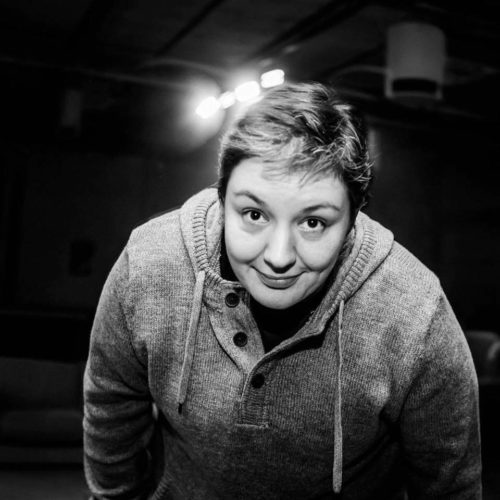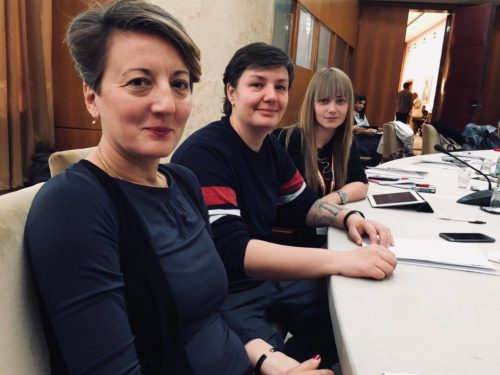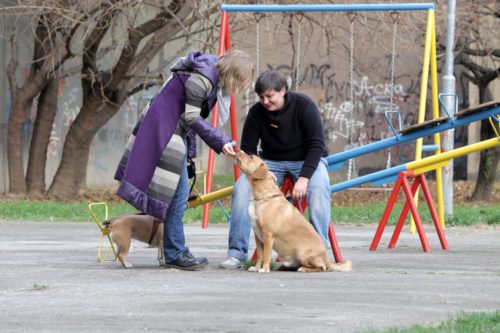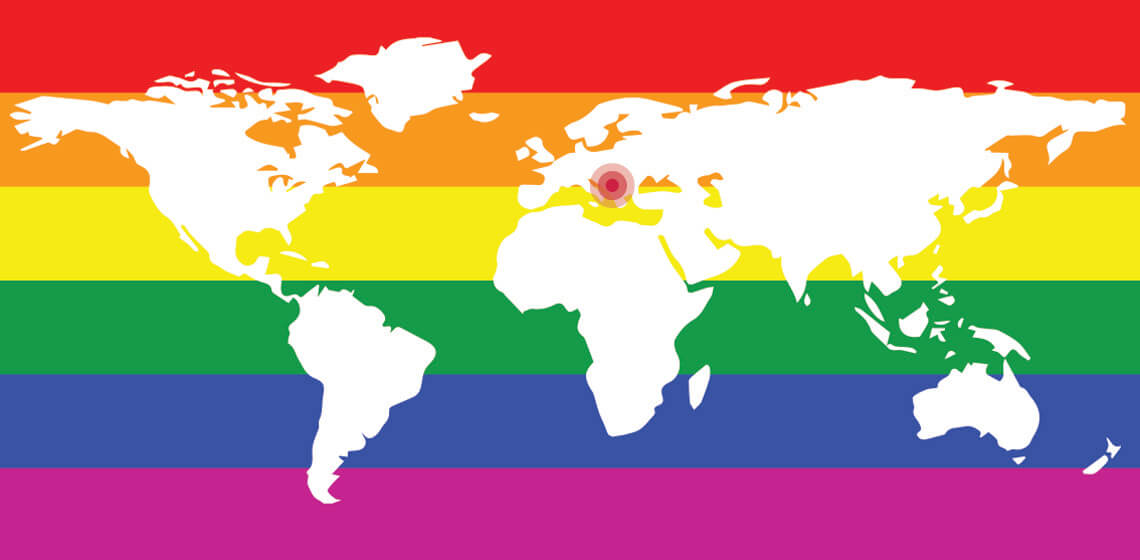As you know, Serbia’s current prime minister is not only a woman but also an out lesbian. Given the result of our recent election, we were wondering if the situation of lesbians* was better there than in Orbán’s Hungary. We talked with Jelena from Belgrade about it. In the post-election period, we tend to be more contemplative, but it is not only because of this that we looked forward to April’s interview. It is an honor to talk with Jelena Vasiljević, as she is one of the leading figures in Serbian lesbian* life. Just a couple of weeks ago she spoke with BBC, now she is ready to tell her story to the audience of qLit. Welcome her
Thanks for being here, Jelena. Can you introduce yourself please?
I’m Jelena from Belgrade, Serbia and for the last eight years I’ve been working in Labris, the oldest lesbian organization in the Western Balkan region. Labris is a feminist, lesbian and women-only organization founded in 1995, which has three programs – community development (we organize workshops, informal social gatherings, or meetings with prominent lesbians from around the world), education (we hold different kinds of workshops to sensitize various groups like health workers or journalists), and advocacy (we fight for improved legal protection and social acceptance of LGBT people; as a matter of fact, Labris took part in writing the Anti-discrimination Law and prepared the draft on Registered Partnership Law). In the beginning I was working as a community development program coordinator and now I’m working in the advocacy program.
Apart from my work in Labris and my activism, I’m a foodie, particularly interested in pastries/desserts.

Your work seems very impressive and influential for the Serbian LGBTQ+ community. Can you tell us how it is for an LGBTQ+ person to live in Serbia?
For decades the LGBT+ people in Serbia have been living in an environment characterized by strong intolerance, homophobia and violence. In such circumstances, the everyday life experiences of the LGBT+ people are marked by fear, anxiety, invisibility and a lack of trust within the private and public spheres (including institutions). Numerous research and reports continuously demonstrate that the LGBT community is one of the most discriminated social groups in Serbia and state institutions have proven to be unable and not willing to ensure full human rights to LGBT persons.
Serbia is a highly patriarchal society. The position of lesbians and gay men within the LGBT+ community (and in general opposition of women and men in Serbian society) is not equal, making it important to mainstream a gender perspective in the all our activism.

I have to say Serbia has a good anti-discrimination legal framework. We haven’t adopted the same-sex partnership law yet but we are hoping that it’s going to happen this year; yet as it happens there is a huge lack of implementation of those laws, the issue that is now more visible than ever is exactly this pink-washing (that is, appearing to be LGBT-friendly but not really being so -- editors). Yes, sure, it’s fantastic that we have outed lesbian as a prime minister but even she is lacking some of the basic human rights (sometimes I’m wondering if she is even aware of it).
Yes, I was going to ask about your prime minister. Now, what’s the situation in your city, Belgrade? Is it better, like most capitals, compared to the rest of the country?
Yes, let’s say the situation here is better than in smaller cities or in rural area of Serbia. That’s why we are now witnessing a migration of the LGBT+ community within Serbia. I must admit it’s nice to see that we have Pride Parades (actually, two of them), clubs and bars, public social events, or rainbow flags on independent state institution (as signs of marking the important days for the LGBT+ community). Nevertheless, we are getting sacked if we out ourselves in at the work place (of course it is always explained with the performance, never as a form of discrimination); bullying based on sexual orientation is widespread within high schools (by the latest research 54% of high school students think that homosexuality is a disease); and the list of de facto discrimination could go on.

Finally, as it is important for us to promote visibility, we always ask our guests to share a memorable or inspirational coming out stories from their lives. Can you think of anything?
It was in 2009 that I was working as a receptionist at a hostel. It was the beginning of autumn and there was huge fuzz around the first Pride Parade (meaning: the first Pride after 2001) that was about to happen in Belgrade. I was watching a tv show and one of the women from Labris was the guest and she was explaining why Pride was crucial to happen for the Serbian society. After the show I called her and we just chatted, she said that some of the activists from the organizing committee were not going to be at the press conference table, and I must say that was a breaking point for me. I thought who is going to stand up for my rights if I’m not standing myself, so I told her that I was going to do it. I told my boss that I needed a lunch break and I left to be one of the announcers of the Belgrade Pride Parade. I just sat there at the table, in silence, and did the performance for the announcement of the date of the Pride Parade. The announcement was in all the news and I think that there was no media that didn’t covered that event, so basically that sitting in the silence was my loudest coming out because every single person that watched that report knew that I am a lesbian.

